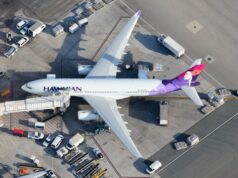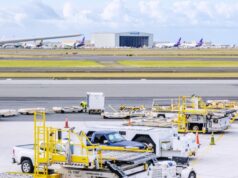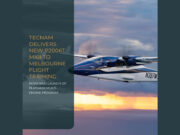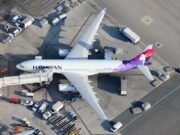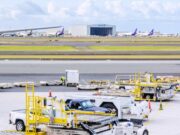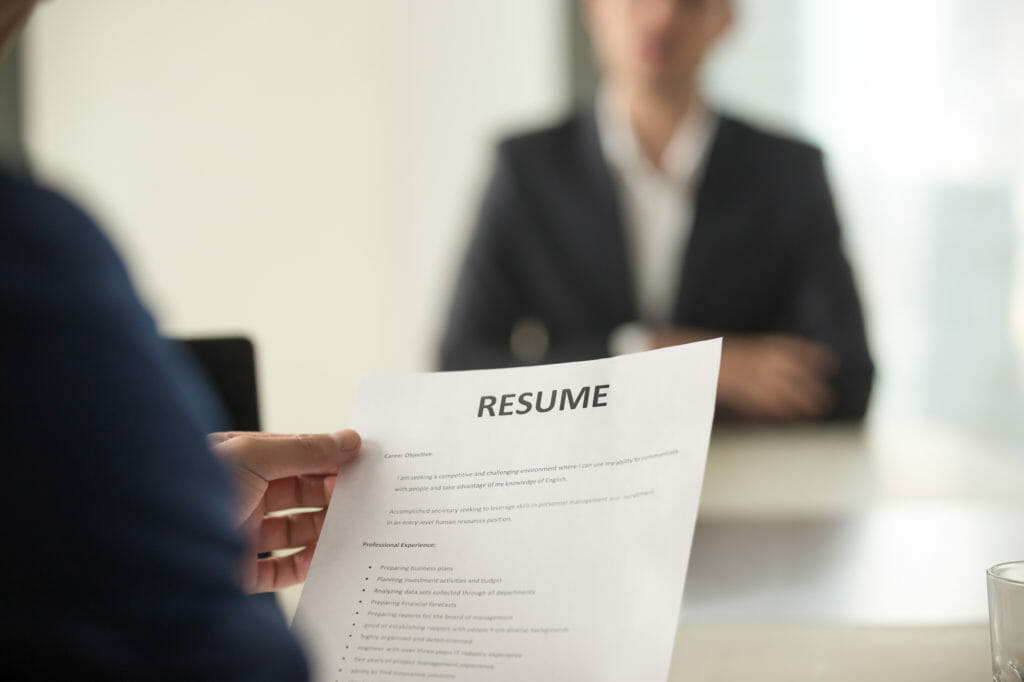 Professional Pilots of Tomorrow’s “Ace It” series highlights various tips and advice to help you succeed in interviews, checkrides, and through the aviation hiring processes. The series covers everything from common suggestions to lesser-known ideas. If you have some advice you’d like to share with fellow pilots, send an email to cameron.shulak@theppot.org. Appropriate credit is always given for submissions.
Professional Pilots of Tomorrow’s “Ace It” series highlights various tips and advice to help you succeed in interviews, checkrides, and through the aviation hiring processes. The series covers everything from common suggestions to lesser-known ideas. If you have some advice you’d like to share with fellow pilots, send an email to cameron.shulak@theppot.org. Appropriate credit is always given for submissions.
Easily the most common question I hear pilots ask regarding job applications and airline hiring is, “Do I really need to put this on my application?” They might be referring to a failed checkride, a less than stellar performance in a training program, or a traffic ticket. It’s an understandable question because it’s tough to proffer a red mark on what is otherwise an impressive application. The questionable incident might have occurred many years ago, or might seem relatively insignificant, but the answer to the question is almost always the same.
Do I really need to put this on my app? Simply, the answer is pretty much always yes. Although applications differ from airline to airline, there is one thing that they all have in common – they are looking for complete and total honesty in your response to every question. If you don’t know this before starting the application, the extensive fine print and disclaimers will definitely remind you. The questions are usually pretty specific in terms of what you absolutely need to disclose and what can be left out. (Usually, little to nothing can be omitted.) Be sure to read the questions carefully. An example of the rare occurrence where a past event can be omitted might be when an application asks for any criminal history, but specifically states to exclude traffic infractions. In this example, it’s perfectly okay to leave out that traffic ticket, since including it would actually be in defiance of what the question asks.
Now, you might wonder why airlines care so much that you tell them everything? Well, aviation is a high-stakes industry in which a large majority of the job is done with no supervision. The Chief Pilot isn’t always riding in your jumpseat, and the VP of Flight Ops isn’t with you on the overnight. For this reason, airlines want to know that the pilots they hire are trustworthy and honest with relatively clean histories and have totally disclosed their entire personal record. Their first way to test an applicant is by having him/her lay out their history on an application. Not only does this give the airlines a great picture of who you are as a pilot and what you’ve accomplished over your career, but it allows them to begin to judge how successful you might be in their operation.
Airlines want to affirm that you have nothing to hide. If for every question that starts with “Have you ever…” you can honestly answer, “No,” great. But if you have an instance that qualifies, just let them know. If the application asks, “Have you ever failed a checkride?” it might be tempting to leave out that one minor stage check you had to redo in college, or the one maneuvers validation you had an issue with during airline training. However, airlines eventually get access to pretty much all of this information before you get to new hire training, so they’re going to find out sooner or later. They’re also going to run extensive background checks and get access to a whole collection of other information about your history, so it’s extremely important that everything be disclosed on your application and in the interview. Disclosing all from the onset ensures that the airline is aware of everything and can make a hiring decision based upon the information. The worst possible situation is getting half way through new hire training to find you’re being let go because the company found something in your records check that you didn’t include on your application. That would put you in an even worse spot than not getting hired in the first place. Regardless, being totally honest during the hiring process is the high road to take and will keep you out of trouble for what will hopefully be a long and successful career at the airline you choose.
Now before you start worrying that you’ll never get hired by your dream airline because you have that one checkride failure, let me offer some comfort in saying that perfect applications are extremely few and far between. You’re definitely not going to be the only one in the applicant pool who has to list a failed checkride, or a traffic citation from your teenage years. To further help put you at ease, many airline recruiters will happily tell you that a limited number of these types of items on your application typically aren’t going to keep you from getting that coveted interview. Airlines typically judge applications holistically, looking at the entire package. With the exception of a few major issues, one item isn’t going to ruin the day.
Lastly, what is equally important to the airlines as what happened, is how you learned and grew from your mishaps. Addressing and correcting mistakes in a professional way shows a potential employer that you can take responsibility for your actions and make the situation right. In an interview, you very well may be asked what happened in a particular situation. Often, an interviewer won’t explicitly ask you to explain how you bettered yourself from it, but this is a valuable thing to include in a response about a past incident. Airlines expect us to always be learning and growing as pilots; handling these situations in a positive way helps to demonstrate that you’re going to be able to respond well to potential issues and learn from them when you’re out flying the line on their behalf.
Disclaimer: This article is provided as complimentary advice for PPOT’s member base and other readers. While PPOT’s mentors and writers are experienced aviation professionals, they can’t be held responsible for any hiring decisions or results from following – or not following – the advice presented in this article or elsewhere within the PPOT organization. Always make your own educated decisions regarding your career and aviation hiring processes. ACN



































































